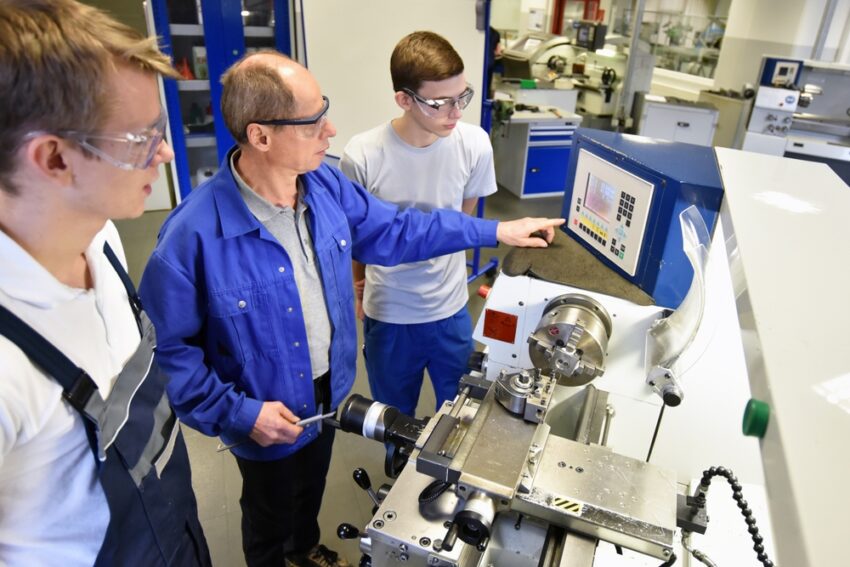Aspen forum attendees admit there’s no return to a pre-Trump world order
ASPEN, Colorado — Six months into President Donald Trump’s second administration, national security elites at the annual Aspen Security Forum have accepted that this president has irrevocably upended the global order.
Against the backdrop of the leafy Aspen Meadows Resort, former and current U.S. and foreign officials, business leaders and analysts acknowledged publicly and privately that the Trump administration has dealt a lasting blow to much of the post-World War II consensus around free trade and long-term cooperation.
“We have to recognize that we’re probably not going back to exactly that system,” former Secretary of State Condoleezza Rice said at the closing panel of the summit. Rice is a co-chair of the Aspen Strategy Group, which puts on the annual Rocky Mountains national security confab.
Her words reflect the striking efficacy of the second Trump administration, which in its first six months has taken a sledgehammer to the norms and conventions that governed U.S. trade relations, use of military force and engagement with stalwart partners and alliances. It has also overseen the elimination of agencies that handle foreign policy tasks — most notably the now-defunct U.S. Agency for International Development — and slashed staff within the intelligence community, the Pentagon and the State Department.
The administration has said these moves are necessary to create a more focused and effective foreign policy process that can prioritize American interests above all. But its critics have said the U.S. is reducing its ability to respond to crises, losing its credibility with allies and undermining the global economy by taking such a pugilistic approach to policy.
Either way, attendees at Aspen are trying to adjust to an America First world order.
The first time Trump was president, the national security establishment started out thinking they could influence his policy, and then assumed his policy moves could be easily reversed once he left office. Now that same group is struggling to come up with strategies to influence even on the edges, especially when the administration doesn’t want to be part of the conversation.
The day before the conference was scheduled to start, the Pentagon pulled its speakers, calling the conference a “den of globalists” that didn’t match the administration’s values.
In the end, only one administration official attended the conference: Adam Boehler, Trump’s special envoy for hostage release. The other non-Pentagon official who’d been slated to speak — U.S. Ambassador to Turkey and Syria envoy Tom Barrack — withdrew following Israel’s Wednesday strikes on Syria.
Boehler participated in a convivial on-stage interview with CNN anchor Kaitlan Collins where he outlined how the Trump team addressed conflicting portfolios and argued the administration is moving in lock step to achieve key priorities, including freeing Americans held hostage by rogue regimes and actors around the world.
“I have a president and team that backs it up,” Boehler said of his efforts to free Americans. “It gives me strength. When we decided to make a move, and the president decided to move on Iran for me, getting Americans out — that’s going to get Americans out.”
Given the administration’s limited presence, attendees were forced to wrestle with how to address the president’s many changes to foreign policy amongst themselves. The main approach at the conference seemed to be to at least avoid antagonizing team Trump.
Much praise was offered for Trump’s recent expressions of support for Ukraine and the success of U.S. airstrikes on Iranian nuclear facilities in deteriorating Tehran’s nuclear capabilities.
And Trump’s overhaul of federal agencies and departments was met with resignation and even some optimism. In informal conversations, there was recognition from some attendees that the State Department was overdue for reform to cut through decades of bureaucracy. The main protest was about the manner in which the cuts were being made.
“They all need reform,” said a former U.S. diplomat who attended the forum of USAID and State. “There are a lot of challenges with how the bureaucracy is set up, and part of it is because of congressional demands. But this isn’t reform. This is just dismantling and shutting down government bodies … and poor treatment of federal workers.”
The former diplomat, like others cited, was granted anonymity to speak freely about the conference.
Panelists and attendees also embraced the need to rethink the way that the U.S. offers foreign assistance. In one session discussing the future of foreign aid, panelists agreed that the Trump administration’s pursuit of access to critical minerals in Africa’s Great Lakes region represents an opportunity for alliances with countries that China has looked to court in recent years.
“There are a number of questions that rightfully should be asked, but I wouldn’t condemn it outrightly. I think there is an opportunity to be had going down the line,” Comfort Ero, who leads the International Crisis Group think tank, told the audience.
Especially on economic questions, attendees and panelists were quick to note that the protectionist tendencies Trump embraces are gaining adherents across the U.S. ideological spectrum.
“It’s a big deal that you’ve now had two presidents of two different parties take a protectionist line,” former U.S. Trade Representative and World Bank Group President Robert Zoellick, said on one panel. “That is a very big switch in the nature of trade politics.”
Some attendees expressed frustration at what they saw as pandering to Trump, saying there was a missing opportunity to have more discussion on the main stage about the potential impacts of Trump’s policies and governing style on U.S. democratic institutions and institutions around the world.
A recurring theme across panels was frustration with Congress over its repeated inability to pass a budget on time. Such delays in passing a budget and a reliance in recent years on continuing resolutions have been blamed for lags in innovative defense initiatives and snags in securing contracts.
The threats posed by China in the Indo-Pacific — which many Democrats and Republicans agree are pressing — came up in many discussions, as foreign officials and former U.S. officials warned that the risk of full-scale conflict with Beijing over Taiwan or other flashpoints had reached an unprecedented level.
Still, some Democratic attendees argued that Americans aren’t necessarily sold on Trump’s vision for the world. On a panel Friday, Biden administration national security adviser Jake Sullivan argued that people on both sides of the aisle are too ready to read Trump’s 2024 victory as a mandate for protectionism and isolationism.
“We tend only to read the signals in one direction. And I think that’s not right,” said Sullivan, who noted that few people suddenly argued Americans were newly interested in the world after President Joe Biden — widely seen as a fervent internationalist — defeated Trump in 2020. “I actually believe the American people continue to believe in principled engagement in the world, and continue to believe that our fate is tied to the fate of people elsewhere.”
Few solutions were also being offered to the fundamental changes Trump is ushering in, cautioned the former U.S. diplomat.
“Especially on soft power, I’m seeing a lot fall apart but it doesn’t seem like there’s something else being built to put in its place,” the diplomat said.
Some officials focused their warnings on the dangerous uncertainty created by the kind of reshaping of the world that Trump has embarked on.
“Any student of history will know the most dangerous phase is the interregnum between one world order and another,” said Singaporean Foreign Minister Vivian Balakrishnan during a fireside chat at the conference. “Are we in that interregnum? Yes, we are.”
Nahal Toosi and Felicia Schwartz contributed to this report.




















:quality(85):upscale()/2025/10/09/670/n/1922283/00b944c868e7cf4f7b79b3.95741067_.jpg)
:quality(85):upscale()/2025/10/15/765/n/1922398/29c37a6e68efd84bb02f35.49541188_.jpg)
:quality(85):upscale()/2025/09/09/891/n/1922283/7222624268c08ccba1c9a3.01436482_.png)
:quality(85):upscale()/2023/10/03/668/n/1922283/1f15c8a9651c2d209e5eb5.32783075_.jpg)













:quality(85):upscale()/2025/07/10/708/n/1922398/8fe2782e686fe372b38bf8.29984296_.jpg)
:quality(85):upscale()/2025/01/08/844/n/1922398/cde2aeac677eceef03f2d1.00424146_.jpg)

